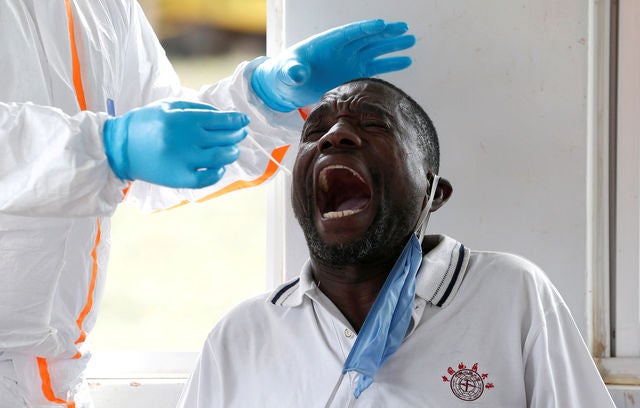Preparing the next generation of 'disease detectives'
Tanzania's Field Epidemiology and Laboratory Training Program uses a One Health approach to combat – and prevent – public health outbreaks

In the early days of the COVID-19 pandemic, community health workers (CHWs) undertook a crucial role in communities around the world. Providing primary health care (PHC) and health education services, CHWs were often the first – and only – point of contact for people seeking care, particularly in remote and under-served areas. In addition to delivering PHC, they were also widely credited with helping maintain health service equity.
Working alongside CHWs was a highly specialized – and perhaps less immediately visible – force of field workers and epidemiologists deployed to combat outbreaks and help prevent the spread of the virus.
These "disease detectives," as they are often called, respond to public health threats by focusing on biostatistics, field investigation techniques, and laboratory analysis, as well as mapping, modeling, and data visualization to better understand disease progression. Gathering data, analyzing disease patterns, identifying potential sources of outbreaks, and implementing control measures to prevent further spread, disease detectives responded to the pandemic, in real-time.
In Tanzania, the country’s Field Epidemiology and Laboratory Training Program (TFELTP) was established in 2015 by the U.S. Centers for Disease Control and Prevention, Tanzania’s Ministry of Health, Community, Development, Gender, Elderly and Children, and the U.S. Defense Threat Reduction Agency, to strengthen the country’s health emergency capacity. Unique to the TFELTP is that it includes a laboratory component and a One Health approach, focusing on the symbiotic relationship between human health, animal health, and the environment. A One Health approach, said the World Bank’s Juan Pablo Uribe, while reflecting on health systems resiliency, “can help countries better prevent, prepare for, and respond to health emergencies.”
Today, Tanzania has seen the over 860 graduates from its program go on to provide more than 8,000 weekly surveillance reports, more than 1,500 IDSR (Integrated Disease Surveillance and Response) data quality audits, and more than 1,000 problem identifications and analysis for cholera, Ebola, and measles. In March 2020, when the country detected its first case of COVID-19, the Ministry of Health summoned the TFELTP’s disease detectives to the Public Health Emergency Operations Center, so they could provide overall coordination, risk communication, and surveillance.
The U.S. CDC, which provided funding for various FELTP programs worldwide, touts the actions taken by Tanzania’s disease detectives to curtail the spread of COVID-19. This includes providing education to households, religious leaders, and community sites; providing enhanced screenings at airports; educating council members to alleviate fear and curb misinformation; staffing Emergency Operations Center including analyzing data to guide government officials; and providing support for COVID-19 surveillance and outbreak response in 15 regions. FELTP graduates also worked with CHWs to conduct COVID-19 alert detection and reporting, both of which are fundamental to curtailing any disease outbreak.
WHO Director-General Dr. Tedros Adhanom Ghebreyesus said, this is an area that remains a challenge for most countries around the world. “Surveillance and genetic sequencing have declined globally, making it more difficult to track known variants and detect new ones,” he commented in January 2023, adding that although “the world is in a better position than it was during the peak of the Omicron transmission one year ago, more than 170,000 COVID-19-related deaths have been reported globally within the last eight weeks.”
PATH CEO Nikolaj Gilbert said, in a recent Exemplars News interview, that COVID has demonstrated “the need for stronger, more integrated health systems everywhere,” and pointed to the importance of the work done by disease detectives. “When facilities and human resources were unable to shift to support the response, when surveillance and laboratories were not connected, when sick leave policy didn’t reflect reality, communities suffered,” he said.
100% of Tanzania’s FELTP graduates currently remain working in the health system. But as with most countries seeking to build stronger, more resilient health systems, much work remains to be done.
How can we help you?
believes that the quickest path to improving health outcomes to identify positive outliers in health and help leaders implement lessons in their own countries.
With our network of in-country and cross-country partners, we research countries that have made extraordinary progress in important health outcomes and share actionable lessons with public health decisionmakers.
Our research can support you to learn about a new issue, design a new policy, or implement a new program by providing context-specific recommendations rooted in Exemplar findings. Our decision-support offerings include courses, workshops, peer-to-peer collaboration support, tailored analyses, and sub-national research.
If you'd like to find out more about how we could help you, please click . Please consider so you never miss new insights from Exemplar countries. You can also follow us on Twitter and LinkedIn.
